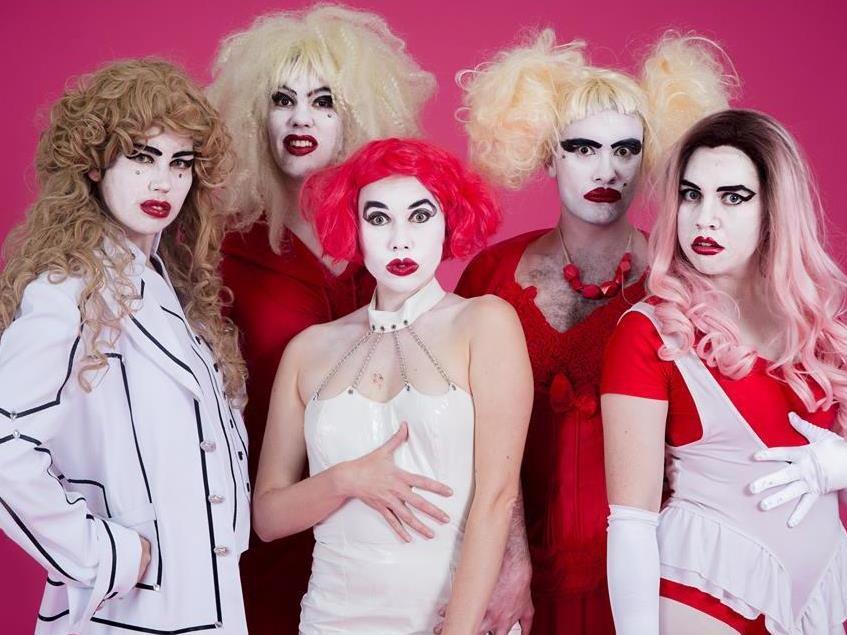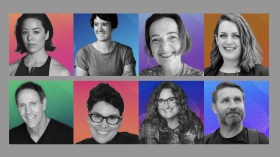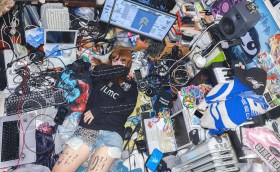Social myths and misconceptions surrounding creative careers have plagued artists and arts workers since the first day they took up quill or paintbrush. Often this begins with the moment you break the news of your career choice to the important people in your life.
Reactions can vary from delight to well-meaning parental concern. And it is often the fear of such concern, coupled with the ways it is informed by cultural and social norms, that can force the aspiring creative to choose a different path.
But that doesn’t stop young people from turning to their parents for advice. According to the 2017 Skillsroad Youth Census, parents are ranked number one on the list of those whom Australian youths turn to for career advice, with friends coming a close second. Teachers trail behind in third place.
While we seek advice from the people closest to us, we also have a tendency to take that advice to heart, especially when it’s not the feedback we want to hear. How can the next generation better prepare for this conversation?
Artists who have experienced this fraught moment in their pursuit of a creative career share their stories and advice with ArtsHub.
‘They thought I was going to live a life of poverty.’
Aanisa Vylet is an actor, writer and auteur with a creative career spanning eleven years. ‘Nothing else made me happier,’ Vylet said of her early creative experiences. But it was the fear of breaking the news to her parents, not concerns about possible career hiccups, that most worried her.
‘So, I was in my second year of my Bachelor of Secondary Teaching and I realised I wanted to be an actor. I broke the news to my parents, they both sat on my bed and they both cried, and they both literally thought I had said I wanted to be a prostitute.’
Such misgivings from her parents came from a place of concern for Vylet’s future.
‘The thing is I come from an Arab-Islamic background so it was very hard for them to comprehend the life choice I was making. They thought I was never going to make money,’ she said.
‘They were very worried about how my body would be used in the arts. They automatically thought I would have to wear a bikini on Home and Away and have sex. And especially from their perspective – they’ve been very respectful of my religious choice – but to them they were thinking, “How is this industry going to use this girl?”’
Vylet’s parents were also concerned about how their daughter would be treated in the screen industry due to her cultural background. ‘They were just terrified. It was almost like I was throwing myself to the wolves. Their biggest concern was what would happen to me once they were gone because they could not see me having a happy life.’
Over time Vylet worked with her parents on breaking down the myths that are so prevalent about the screen industry. ‘Because my parents are very compassionate and respectful people we were able to deal with those myths and demystify them over the last ten years.
‘Slowly, each time that I shared my own work, my self-directed work, my parents started to understand the process of allowing yourself to be seen. The process of sharing really scary important work requires that you face the fears, and you break through them, but it’s not a comfortable process. We are starting to develop a very strong relationship in understanding.’
Vylet concluded with some powerful words for young artists: ‘Don’t force yourself to be an image of what an artist is supposed to be. It’s a reflexive term. You don’t have to make art 24/7.
‘I know a lot of younger artists are bound by having to take care of their family financially – there’s no shame in that, there’s no shame in putting family first, but you do not have to let go of that artist inside you. You don’t have to bury it down and think you have failed. You have never failed yourself.’
’20 years later I’m still making work. Couldn’t do anything else.’
Theatre maker and co-director of Tilted Projects, Dirk Hoult has recently been busy with his play, We Were There, featured at this year’s Midsumma Festival. Although he has experienced several successes throughout his career Hoult’s early experiences in pursuing theatre were met with negative feedback from his parents.
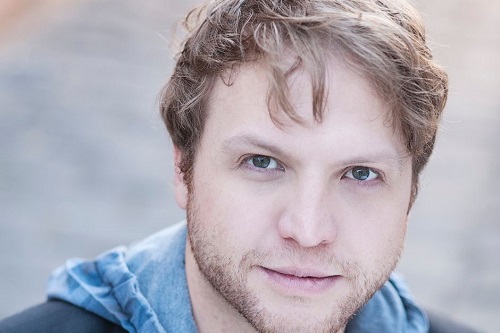
Image: theatre maker Dirk Hoult via Tilted Projects.
‘I’m not sure what’s worse with my parents, being queer or being an artist. Neither of which they understand,’ he told ArtsHub. ‘When I was in grade 10 – back in the 90s – my high school had us start looking towards university and ideas of what we wanted to be when we grew up. I had my sights firmly set on NIDA – I wanted to be an actor.’
Hoult told of his parents’ reaction to this news, ‘They sat me down on the back steps and said to me, “You’ll never be an actor. And we’re telling you this now to save you a lot of wasted time and heartache. You’re not good looking enough. You’re not talented. There are millions of people on the world more talented and better looking than you, that you simply won’t have a chance,”’ he said.
Hoult’s parents didn’t allow him to apply to NIDA, but he didn’t give up. Instead, he ‘applied to USQ in my senior year for the acting degree. And I got in. Which shocked them. They agreed to support me as long as I promised to follow it up with an education degree. I didn’t.’
Despite proving himself time and time again with successful projects, Hoult still often questioned his role in the creative arts. ‘I carried this for a decade or more – the feeling, the belief that I would never be enough. On one hand it has been a source of anxiety and on the other hand it has been possibly one of the ingredients that kept me going, that drove me to prove them wrong.
‘I used to think – why don’t you believe that I have the power to do anything? Achieve what I set myself to doing? It took some years to realise that their fears were not mine. That my life, my path, was my own to make,’ he reflected.
‘I just wonder how hard it would be if my family didn’t support me.’
Claire Sullivan is a comedian and writer. As a young artist she has made waves with her comedy troupe PO PO MO CO (aka Post Post Modern Comedy), as well as with her independent comedy work with That’s What She Said, a digital initiative on Facebook that encourages and gives a platform to female comedians.
‘Since I was a kid I’ve always been into the arts. I remember going to the Christmas pantomime in grade three and I was sitting and watching the performance on stage and thinking I wanted to be them. I asked my teacher afterwards, how do I get to do that? She was like, “You just do Drama classes,” – and so I signed up for drama classes,’ Sullivan said.
Sullivan’s dad, a teacher, and her mum, a psychologist, have always encouraged her to follow her creative calling. ‘My parents have always been pretty supportive – they’ve always wished I did an accounting degree though, so I could have a back-up or whatever but other than that they have always been pretty supportive.’
She acknowledged the difficulties other young artists face when having to choose their career path. ‘I just wonder how hard it would be if my family didn’t support me. I’ve always been a bit creative so it wasn’t like, “Hey by the way I want to study art”.’
As her career progressed, so too did her comedy styling. ‘Nosfer-ARSE-tu (our most recent show with my comedy group PO PO MO CO) is about a lonely gay vampire. The show is a pantomime and we actually use my arse as a puppet. My arse plays the main vampire – we use goggle eyes on my butt cheeks,’ she described.
When asked about her parents’ reaction to her comedy Sullivan said: ‘They are so proud of me. When they send me birthday cards they always write “we are so proud of you”. Sometimes I’m like, “the next show is going to be really really naughty,” and they’re like “great, we will love it”.’
Though she has the full support of her parents, Sullivan still deals with the usual day-to-day struggles faced by artists. Such struggles are a reflection of the myths surrounding arts work. ‘It’s really hard – there is a lot of work but after I hang up the phone from you I have to call Centrelink, good old Centrelink, because I don’t make enough money from my day time job. I work in retail, but I haven’t been able to work there in months due to rehearsals. There are so many artists who have to go through Centrelink and even live off it.’
‘What or who makes the artist?’
Josephine Giles is a musician and teacher. She shared her mother’s story with ArtsHub, explaining how this influenced her own choices in a creative career.
‘My story is about a mother who grew up with music, but was shunted off to secretarial school when she was 15. She became a nurse, later a wife to a medical specialist, then a feminist and union activist – and ultimately a Labor senator and internationally recognised figure in women’s politics. She played the piano, and we grew up singing and playing instruments around the piano.’
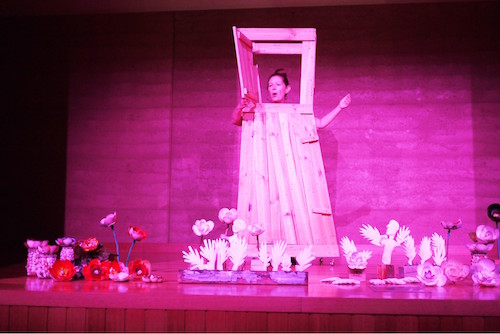
Image: Soprano Josephine Giles in Cupboard and sculptures by Gay Hawkes. Photo by Les Allester. Supplied.
Giles went on to explain the love of music that was deeply instilled in her by her mother, recalling that her favourite memories were of her and her mother singing feminist songs in the 70s.
‘My older siblings pursued careers in academia, politics and law, but my special connection with mum was through music. Listening to singers on the ABC, going to movies in the 60s of operas, attending orchestral concerts. I had the smarts to do anything I liked, but my heart lies in music. Mum supported me always in this.’
Giles followed her passion and went on to study opera and music theatre. ‘I’ve tried doing other things but being an artist is all I can do.’
Giles reflected on a conversation she had with a sibling who said, ‘”Isn’t it time you gave up this dream, get a job, any job… have you thought about becoming a teacher? Etc?”
‘I do teach singing, and have come to love it, especially those moments when my creativity and intellect spark as one. What a buzz! But what I’m talking about is the value I inherited from my mother of finding the most meaning in this world through the language of the arts; music, visual arts, theatre. The non-literal expression. I feel both blessed and stunted by this,’ Giles said.

